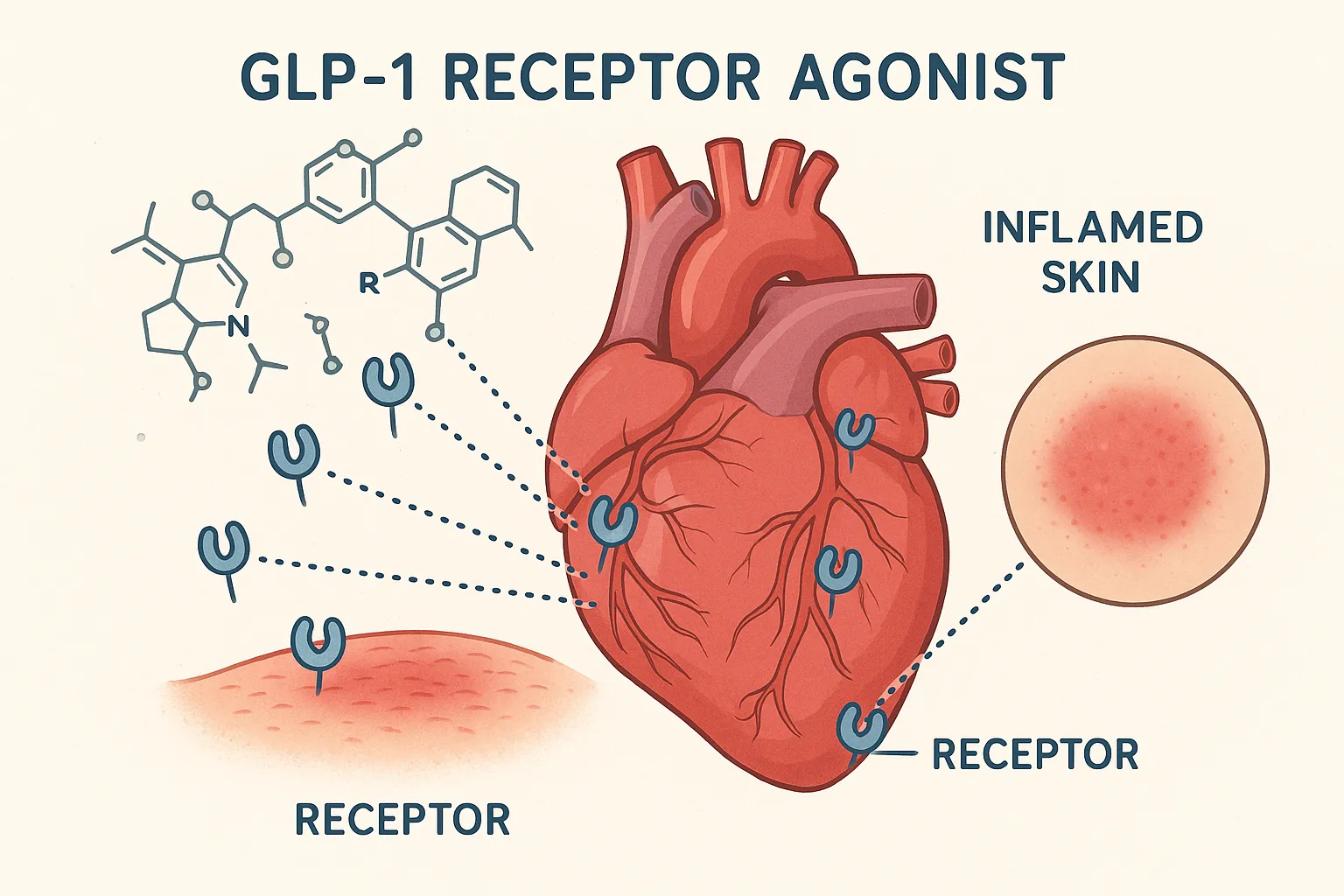GLP-1 Receptor Agonists Shown to Reduce Cardiovascular Event Risk in Patients with Type 2 Diabetes and Atopic Dermatitis

August 22, 2025 | BOSTON
Medscape Medical News reports today that glucagon-like peptide-1 (GLP-1) receptor agonists can greatly lower major adverse cardiovascular events (MACE). This finding applies to adults with type 2 diabetes (T2D) who also have atopic dermatitis (AD).
The study analyzed real-world data from a big electronic health records network. It looked at patients with T2D and AD who were prescribed a GLP-1 agonist, such as semaglutide, liraglutide, dulaglutide, or exenatide. These patients were compared to controls who were on other antidiabetic treatments. Over a median follow-up of 3 years, the GLP-1 cohort had fewer hospitalizations for heart attacks, strokes, or heart failure. This led to a significant drop in cardiovascular risk when compared to non-GLP-1 therapies.
Investigators see these benefits as partly due to GLP-1 agonists’ various effects. These include improved glycemic control, weight loss, reduced blood pressure, and positive changes in inflammatory pathways. Such mechanisms are especially significant for patients with chronic inflammatory skin disorders like AD. The findings support new guidelines. They recommend GLP-1 receptor agonists for managing blood sugar in high-risk T2D patients. These drugs also offer heart protection in various inflammatory and metabolic situations.
Categories
Autos and vehicles Beauty and fashion Business and finance Climate Entertainment Food and drink Games Health Hobbies and leisure Jobs and education Law and government Other Politics Science Shopping Sports Technology Travel and transportationRecent Posts
Tags
Archives
08/19/2025 (3) 08/20/2025 (40) 08/21/2025 (27) 08/22/2025 (22) 08/23/2025 (4) 08/24/2025 (21) 08/25/2025 (30) 08/26/2025 (24) 08/27/2025 (29) 08/28/2025 (16) 08/29/2025 (9) 08/30/2025 (13) 08/31/2025 (17) 09/01/2025 (167) 09/02/2025 (124) 09/03/2025 (149) 09/04/2025 (112) 09/05/2025 (72) 09/06/2025 (169) 09/07/2025 (162) 09/08/2025 (150) 09/09/2025 (176) 09/10/2025 (194) 09/11/2025 (194) 09/12/2025 (186) 09/13/2025 (207) 09/14/2025 (159) 09/15/2025 (175) 09/16/2025 (198) 09/17/2025 (196) 09/18/2025 (196) 09/19/2025 (207) 09/20/2025 (129) 09/21/2025 (4)